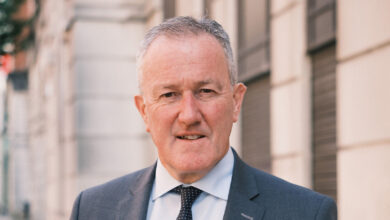Anti-social networks
 Tax is not ‘theft’ but serves a social purpose, John O’Farrell contends.
Tax is not ‘theft’ but serves a social purpose, John O’Farrell contends.
The proportion of cuts to taxes by which the UK Coalition plans to address the deficit is three to one. This says something about their priorities.
Aside from the now obvious fact that the poorest are more ‘in it together’ than the wealthiest (as the former do not have the luxury of opting out of public services), the plan is based on the firm belief that companies and corporations have fewer social obligations than the rest of us. One of Gideon ‘George’ Osborne’s first acts as Chancellor was to partially reverse rises in national insurance – but only for employers’ and not employees’ contributions.
Similarly, the bank ‘levy’ will be restored to its ‘rightful’ owners within a couple of years through cuts in corporation tax.
Even the slightest ‘interference’ with the financial sector unleashes loud cries of pain from the City and threats to slink off to some low-tax paradise such as, er, Dublin. The unbelievable mess the Republic is in over its public finances is a direct result of the same thinking which dominates the UK Coalition. Namely, that there are interests which are too big to regulate, to tax, or to fail.
In retrospect, the obvious thing to do with Anglo-Irish Bank in 2008 was to do what George Bush did with Lehmans and throw it to the wolves. It was deemed to be of systemic importance to the economy and, anyway, the lads running Anglo were no strangers to the lads running the country.
The fiscal crisis of the Republic was down to not enough tax being collected, as the windfalls from the property boom meant that other taxes could be cut or ignored. A similar mistake is being made in the UK. The scandal over the Vodafone deal with HM Revenue & Customs which saved the corporation a reputed £6 billion has highlighted the ‘light touch’ going on within the state’s revenue collectors.
Morale among HMRC staff is abysmal, with 30,000 let go in recent years and plans to remove another 13,000; research by the PCS trade union has shown the huge cost benefit of hiring more tax inspectors.
The result is the tax gap of £120 billion1, a staggering amount of money which is evaded, avoided or simply uncollected. Many fatuous commentators start (and end) their arguments with comparisons between ‘UK plc’ and a private company, but which firm would simply shrug off £25 billion in ‘bad debts’? That is the amount uncollected each year.
Somewhere in the madness of neo- liberalism, it was decreed or remembered that companies have absolutely no social obligations at all. When a major company which everybody knows, such as Boots the Chemist, relocates its taxable HQ to Zug in Switzerland, there are very few outraged headlines about over £100 million being taken from the taxpayer2.
Contrast that with the coverage showered on benefit cheats, who cost the Exchequer £1.1 billion. That’s a lot of flat-screen TVs, but it pales into comparison with £70 billion of tax evasion and £25 billion of tax avoided by those too big to contribute their share.
Since when was it okay for the interests of shareholders to always trump the interests of the public as a whole? What is being fostered is a large-scale version of the attitude of smugglers along the border, where tax is regarded as theft. This is a common view in America, and we risk at our peril the spread of the same noxious ideology here.
We are forgetting the reasons for taxation:
1. Raising revenue (cash for hospitals and aircraft carriers);
2. Re-distributing income and wealth (taxation can be progressive, or regressive, and has played a significant role in the fortunes of the very rich in recent years);
3. Re-pricing undesirable and desirable goods and services (ciggies and booze, but also VAT-free newspapers);
4. Raising representation (through universal services, taxes and benefits – where we are all in it together);
5. Re-organising the economy (good things like the Barnett formula; bad ideas like cutting corporation tax in Northern Ireland3).
Taxation has a deeper purpose than grabbing cash from the unwary. More than the pageantry of history or the glitter of royal weddings or even the X-Factor, more than football, more than disliking the French, tax really is the glue which binds us. The less of it there is, or the more unfair the system becomes, the less we are all in this together.





